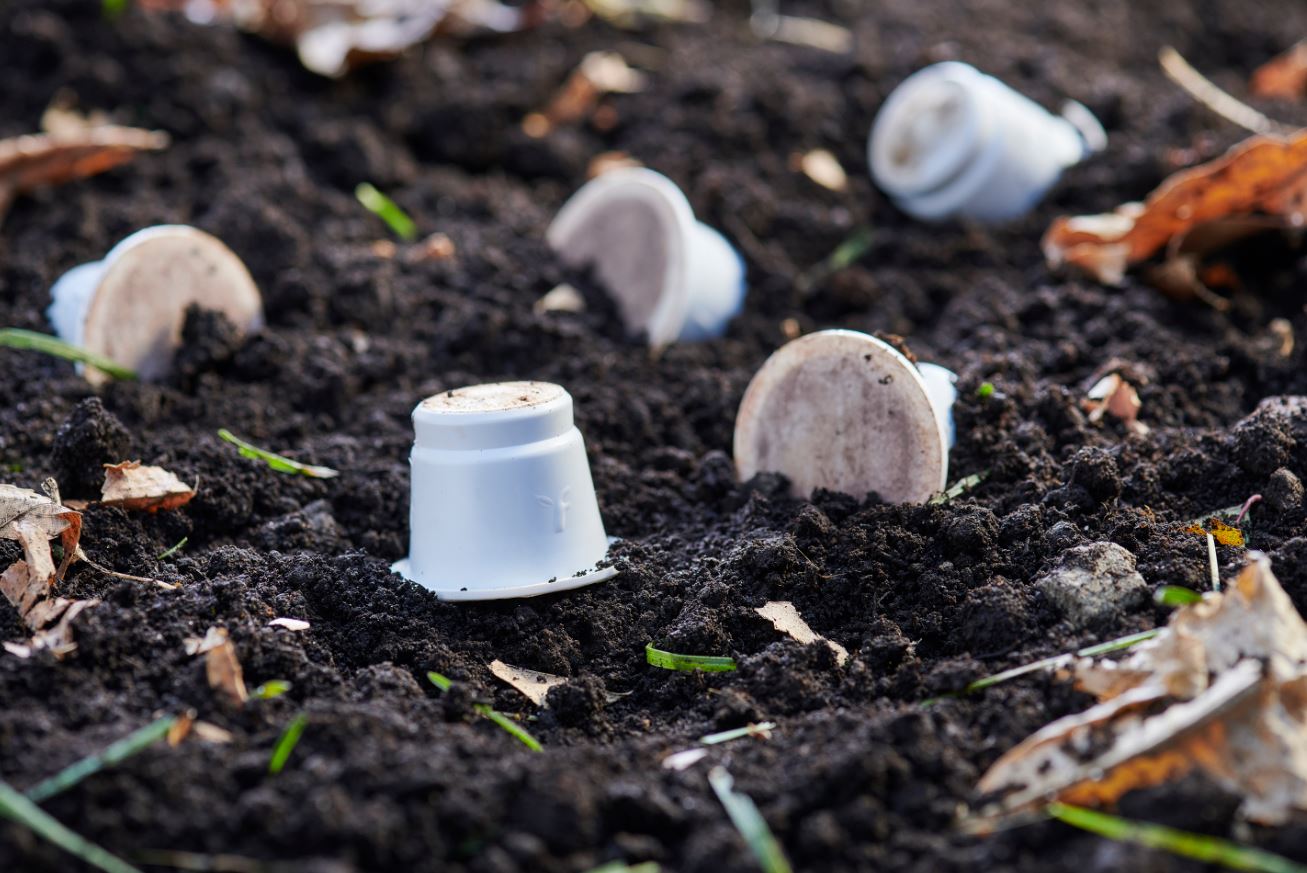A new study by Wageningen Food & Biobased Research, a part of Wageningen University & Research (WUR), has found that coffee capsules made with Ingeo™️ PLA biopolymer from NatureWorks outperform aluminum, conventional plastics, and other compostable capsules in terms of sustainability performance. The study assessed the environmental impact and circularity of single-use coffee capsules made from compostable biobased materials, aluminum, and conventional plastics through multiple end-of-life scenarios, including industrial composting, recycling, incineration, and landfill.
The study found that compostable capsules made from Ingeo-based materials, produced by NatureWorks’ partner and food packaging producer, Flo SpA, have a low impact on global warming due to being made from annually renewable, plant-based resources. The study also showed that compostable capsules have a Material Circularity Indicator (MCI) of 100%, or fully circular, when they are composted, as both the capsule material and coffee grounds undergo organic recycling in this process.
“The conclusion of this study is significant because it represents the entire life cycle of the capsule and the coffee inside – from carbon footprint to its circularity potential,” said Flavio Di Marcotullio, Strategic Marketing Manager, Single Serve Beverages at NatureWorks. “It clearly shows that compostable capsules made with Ingeo are, bottom line, the most sustainable material for single-use coffee capsules, outperforming recycling scenarios for both conventional plastic and aluminum while also making disposal simple for consumers.”
The study emphasized the global warming potential over a period of 100 years in carbon dioxide equivalents and the MCI. Ingeo-based compostable capsules maintained robust sustainability metrics even in a scenario where consumers disposed of the capsules improperly into another waste stream.
“The MCI integrates critical factors such as recycling rates, recycled content, recycling process yield, biobased content, reusability, and average product lifespan,” said Erwin Vink, Sustainability Director, NatureWorks. “Originally developed by the Ellen MacArthur Foundation and tested by leading European businesses with real product data to ensure its robustness and relevance economy-wide, the MCI is the most comprehensive tool for measuring the circularity of materials and offers scientifically based insights for guiding sustainable material choices.”













